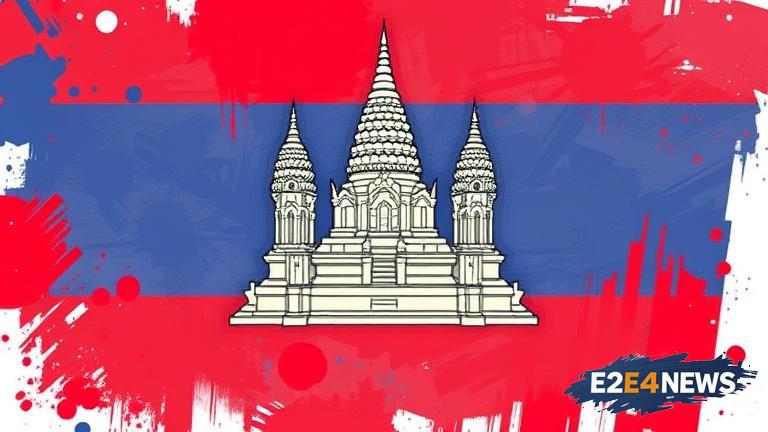In a move that has been met with widespread criticism, the Cambodian National Assembly has unanimously approved a law that grants the government the power to revoke the citizenship of individuals deemed to be a threat to national security or who have committed serious crimes. The law, which was passed on August 26, 2025, has sparked concerns among opposition groups and human rights activists, who argue that it could be used to silence dissenting voices and further erode democratic freedoms in the country. The new law allows the government to revoke the citizenship of individuals who have been convicted of serious crimes, such as treason, terrorism, or corruption, as well as those who have been deemed to be a threat to national security. However, critics argue that the law is too broad and could be used to target opposition politicians, activists, and journalists who are critical of the government. The law has been widely condemned by human rights groups, who argue that it is a clear attempt to further restrict the rights of Cambodian citizens and undermine the rule of law. The Cambodian government has defended the law, arguing that it is necessary to protect national security and maintain public order. However, many are skeptical of the government’s motives, given its history of using laws and regulations to silence dissent and maintain its grip on power. The passage of the law has also sparked concerns about the potential impact on Cambodia’s relations with other countries, particularly in the European Union and the United States, which have been critical of the government’s human rights record. The EU has already imposed sanctions on Cambodia in response to its deteriorating human rights situation, and the passage of this law is likely to further strain relations. The US has also expressed concerns about the law, with the State Department issuing a statement calling on the Cambodian government to respect the rights of its citizens and uphold the rule of law. Despite the international criticism, the Cambodian government appears to be pushing ahead with its plans to implement the law, which is expected to come into effect in the coming months. The law has also sparked concerns among Cambodian citizens, who are worried about the potential impact on their rights and freedoms. Many are fearful that the law could be used to target them for speaking out against the government or for participating in peaceful protests. The passage of the law has also highlighted the lack of independence of the judiciary in Cambodia, which is seen as being closely aligned with the government. The judiciary has been criticized for its lack of transparency and accountability, and its willingness to do the government’s bidding. The law has also sparked concerns about the potential impact on Cambodia’s economy, which is heavily reliant on foreign investment and trade. The passage of the law is likely to deter investors and damage the country’s reputation as a stable and secure place to do business. The Cambodian government has attempted to reassure investors that the law will not affect the economy, but many are skeptical. The law has also sparked concerns about the potential impact on Cambodia’s relations with its neighbors, particularly in the Association of Southeast Asian Nations (ASEAN). The passage of the law is likely to further strain relations with countries such as Indonesia and Malaysia, which have been critical of the government’s human rights record. The law has also highlighted the need for greater international pressure on the Cambodian government to respect the rights of its citizens and uphold the rule of law. The international community must continue to speak out against the government’s abuses and push for greater accountability and transparency. The passage of the law is a clear attempt to further restrict the rights of Cambodian citizens and undermine the rule of law, and it must be condemned in the strongest possible terms. The Cambodian government must be held accountable for its actions, and the international community must continue to push for greater respect for human rights and the rule of law in Cambodia.
